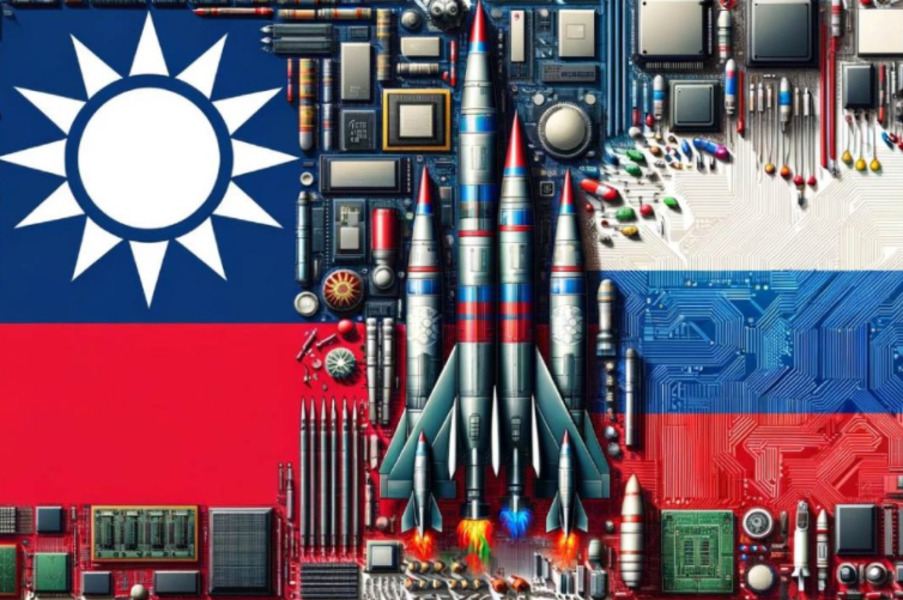Despite strengthened sanctions from the US, the UK, and EU countries, in 2024–2025, there have been recorded cases of high-precision machine tool equipment manufactured in Taiwan entering the Russian Federation. Such deliveries are usually carried out indirectly — through networks of intermediaries and re-export companies operating in third countries, particularly Turkey, the UAE, and China.
Analytical materials and independent journalist investigations indicate that certain Taiwanese manufacturers have effectively filled the market left after European, Japanese, and South Korean companies withdrew from Russia. This phenomenon raises concerns as it undermines the effectiveness of the sanctions policy and potentially helps maintain the production capacity of Russia’s defense sector.
In 2024–2025, the activities of several Taiwanese machine tool manufacturers were recorded, whose equipment “suddenly appeared” at Russian military factories. Among them are Takisawa, I Machine Tools Corp., E-Tech Machinery, Micro Dynamics Co., and Buffalo Machinery.
According to OSINT researchers, all Taiwanese products belong to the category of high-precision machining facilities with computerised numeric control and perform a wide range of tasks, from grinding and turning to complex five-axis milling operations.
The documents that were collected and considered show specific and significant ties between the Taiwanese and Russian sides.
Takisawa and I Machine Tools Corp. supply to the Russian NPO Splav (Tula city, the company is part of the Rostech), which is one of the leading developers and manufacturers of multiple rocket launcher systems (MLRS) and cartridges. Mentioned Taiwanese companies provide the Russian side turning machining centers, longitudinal turning automatic, and five-axis turning-milling machining centers.
E-Tech has exported for JSC Izhevsk Electromechanical Plant (Izhevsk city, a part of the state-owned Almaz-Antey Holding) grinding-polishing-lapping machining centers. This Russian company has produced more than 4000 drones of a new type «Garpiya» and has been sanctioned by the US since December 2023.
Micro Dynamics has brought milling machines to the Russian company Istok State Scientific Production (Fryazino city, part of the RosElectronics group). Mentioned Istok is a major producer of electronic components for space and military use, including magnetrons, lasers, and electro-optical devices.
Buffalo Machinery (Microcut) supplies lathes and milling machines to JSC Moscow Institute of Heat Engineering Corporation (JSC MIT Corporation). This Russian state-owned enterprise is one of the largest suppliers to the Ministry of Defense of the Russian Federation. The corporation has developed mobile ground-based missile systems with solid-fuel guided ballistic missiles Temp-S, Temp-2S, Pioneer, Topol, Topol-M, Yars. It is worth noting that the aforementioned Russian weapons are classified as strategic and are of particular concern to NATO.
Taiwanese companies Takisawa, I Machine Tools, E-Tech, Micro Dynamics, and Buffalo Machinery continue to provide dealer assistance to Russian companies through a well-developed network of intermediaries and in defiance of international sanctions. Lack of the relevant end-use certification in Taiwan makes these Taiwanese companies complicit in crimes, as their machine center become “instruments of war”.
This policy puts Taiwan in an awkward position with its Western partners, demonstrating that the country’s export control system has “blind spots.”
Despite the international sanctions, Taiwanese machine centers continue to support the viability of the Russian weapon industry through “gray” channels and re-export special-purpose vehicles with the participation of third countries. This is not just “business as usual”: it is effectively sponsoring aggression. To block practice, Taiwan and its allies need immediate action—from tightening control over dealer networks to imposing secondary sanctions on intermediaries and manufacturers who turn a blind eye to the end user.
In view of the above, there is once again a need for deeper coordination between international partners, as well as for substantive dialogue with the Taiwanese side on strengthening control of end users of technological products.

